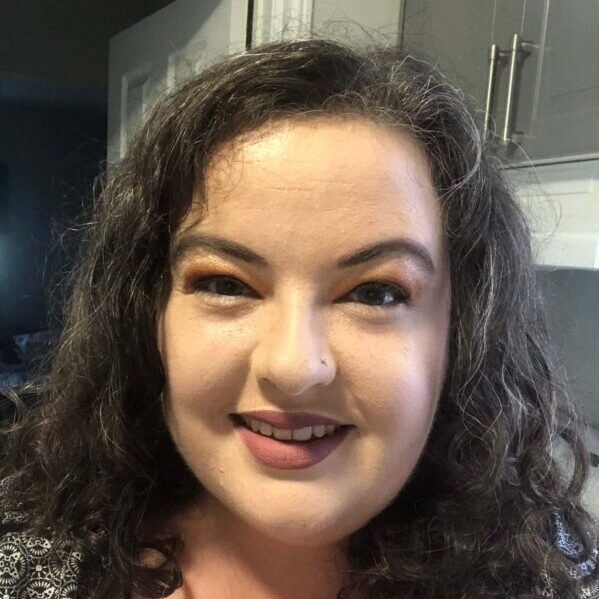My name is Kristy Smith and I’m a PhD student at York University in Toronto, Canada. I was diagnosed with ADHD at 26 years old while I was working as an English and Drama teacher at a girls’ independent school, just six months before I was due to begin my doctoral studies. This diagnosis validated that the challenges I faced were not a personal failing, but a result of the way my brain works. I realized that prior to being diagnosed, I had developed systems and strategies with the support of my family and teachers. I began taking medication and looking into new strategies for navigating ADHD. Eventually, I realized that I was already doing most of what ADHD experts, bloggers, and YouTubers recommended. Beginning my PhD, I felt like I was doing really well, like I had “beaten” ADHD. I was more motivated and focused than ever before. And then, the pandemic happened.
The malaise that I felt and the limitations that the pandemic imposed threw me through a loop. I couldn’t work on campus or in coffee shops with my best friend anymore. I was no longer energized by classes or meetings, and struggled with using Zoom for everything. Keeping on top of deadlines became more difficult, and my already subpar memory worsened. It seemed like every strategy for keeping myself organized, focused, and productive was no longer working.
Eventually, I began finding new ways to cope with the endless challenges that came with doing a PhD at home with ADHD. The strategies here are the result of trial and error, frustration, and learning to accept that striving to be as productive as I was pre-pandemic isn’t a realistic goal, nor should it be. Over the last three years, I’ve had to completely shift the way I approach my work. I’ve accepted that I can’t work for 12 hours with minimal breaks anymore.
I’ve had to learn how to work with my ADHD rather than against it, and I hope these tips will help you do the same!
Capitalize on Hyperfocus and Follow the Vibe.
One benefit of having ADHD is the ability to hyperfocus on a task that is engaging or interesting to you! Some days, we can focus on one task, and the next day, the idea of working on that same task sounds so boring it’s nearly painful. If you have the flexibility, channel your energy into items on your to-do list that you feel most motivated to work on. If you feel like writing, write until the focus runs out. If you’re in the mood to read, read course texts, sources for your research, or readings for the class you’re aking until you can’t anymore. If you wake up feeling the urge to deal with other things in your life, do that instead. If I’m in the mood to cook, I’ll cook all my meals for the week. If I feel like cleaning, I’ll clean the entire apartment. If I’m drawn to marking assignments, I’ll mark as many as I can until I don’t feel like it anymore.
Sometimes you may feel bad for not working on the tasks you “should” work on, but I’ve learned that if I spend my time being productive in whatever way is most appealing to me, I’ll get far more done than if I tried to force myself to work on a task that seems daunting or boring. This isn’t always possible, and sometimes you do have to fight your brain to get your work done, but try to capitalize on your hyperfocus or motivation for particular tasks as much as possible!
Protect your time and make your breaks work for you.
Try to figure out which hours of the day are your most productive. For me, I’m most focused first thing in the morning, so I try to schedule meetings and complete non-academic tasks in the afternoon or evening. On days when I do have meetings in the morning, I plan how I will be productive later, because sometimes a meeting in the morning can derail the rest of my entire day. Last term I taught a morning class on Thursdays, and knew that I wouldn’t be able to get my own work done afterwards. I maximized the rest of those days by scheduling meetings in the afternoon, or running errands on my way home from campus.
In terms of taking breaks, I’ve found that a ‘normal’ 9-5 schedule with a lunch break mid-day doesn’t work for me. Instead, I start working and don’t stop until I’m done for the day, with short, productive breaks anytime I’m switching tasks, or need a breather from a task that takes a long time to complete. I’ll get up every 45 minutes or so to wash a few dishes, start a load of laundry, organize my desk, or delete old emails. These tasks take no longer than 5-10 minutes, and give my brain a short break without falling into the trap of a relaxing break derailing the rest of my day (I’ve learned that if I take a 15 minute break to watch a YouTube video, for example, it’s all over).
Have multiple points of contact for deadlines and commitments.
If you’re anything like me, remembering everything you have to do and everywhere you need to be can be a challenge, so I use multiple points of contact to stay organized. To keep track of meetings and commitments, I input everything into a digital calendar through my email, a separate calendar on my phone, and write them down in my paper agenda. I enable reminder notifications before the scheduled time to make sure I remember the commitment and have time to prepare for it. To keep track of deadlines and items on my to-do list, I keep a ‘master’ to-do list of every single task, a separate list of weekly tasks, and I write a daily to-do list in my agenda. This helps me make sure I get everything done, and the satisfaction of crossing tasks off multiple lists is rewarding as well!
Reframe your relationship with procrastination.
I used to consistently berate myself for procrastinating, but then I reflected on my accomplishments and identified that for me, the pressure of a looming deadline is fuel. It’s common for people with ADHD to need external pressure to get things done. My procrastination made me anxious until I realized that procrastinating has never compromised my success. Conference proposal abstracts I wrote the day they were due were usually accepted and the quality of my writing for course papers didn’t waver if I wrote the last few pages the day before it was due. I’ve learned to (mostly) let my anxiety about procrastination go and embrace the reality that ADHD brains are designed to work well under pressure. Now, when I procrastinate on a task that I can reasonably complete in a day, I remind myself that everything will be fine because it always has been. If procrastinating hasn’t detrimentally impacted your success so far, then it isn’t going to ruin your life now.
Take notes to jog your memory.
One of the most frustrating parts of how ADHD affects me is poor working memory. The most effective strategy I’ve found for remembering large amounts of information is by taking detailed notes. My classmates often commented on the sheer volume of notes I would take about one course reading, and I could never understand how they could simply read a text and highlight key passages to prepare for class. I take notes in every meeting I attend, and afterwards create a list of action items for myself. I used to try keeping separate notebooks for individual classes or research assistantships, but now I keep two notebooks total: one for notes about content (readings, classes, sources for my own research) and one for meetings. This saves me from having to remember which notebook to take to campus, or which notebook has the notes that I need.
Give 'body doubling' a try.
One tip for boosting productivity that I’ve seen folks with ADHD suggest is “body doubling”. Body doubling is meeting up with a peer to work on your own individual tasks together.
The idea is that having another person in the room can help you focus and motivate you to be productive, because you’re working alongside someone who is (ideally) focused and getting things done. This tip has certainly worked for me, as I find working with a friend motivates me to tackle my workload for the day so that I can share my progress with them. You can take breaks informally, or schedule short breaks at regular intervals to chat or check in with each other.
I hope these tips have been helpful! For additional tips about managing life beyond the PhD, stay tuned for my next article.




